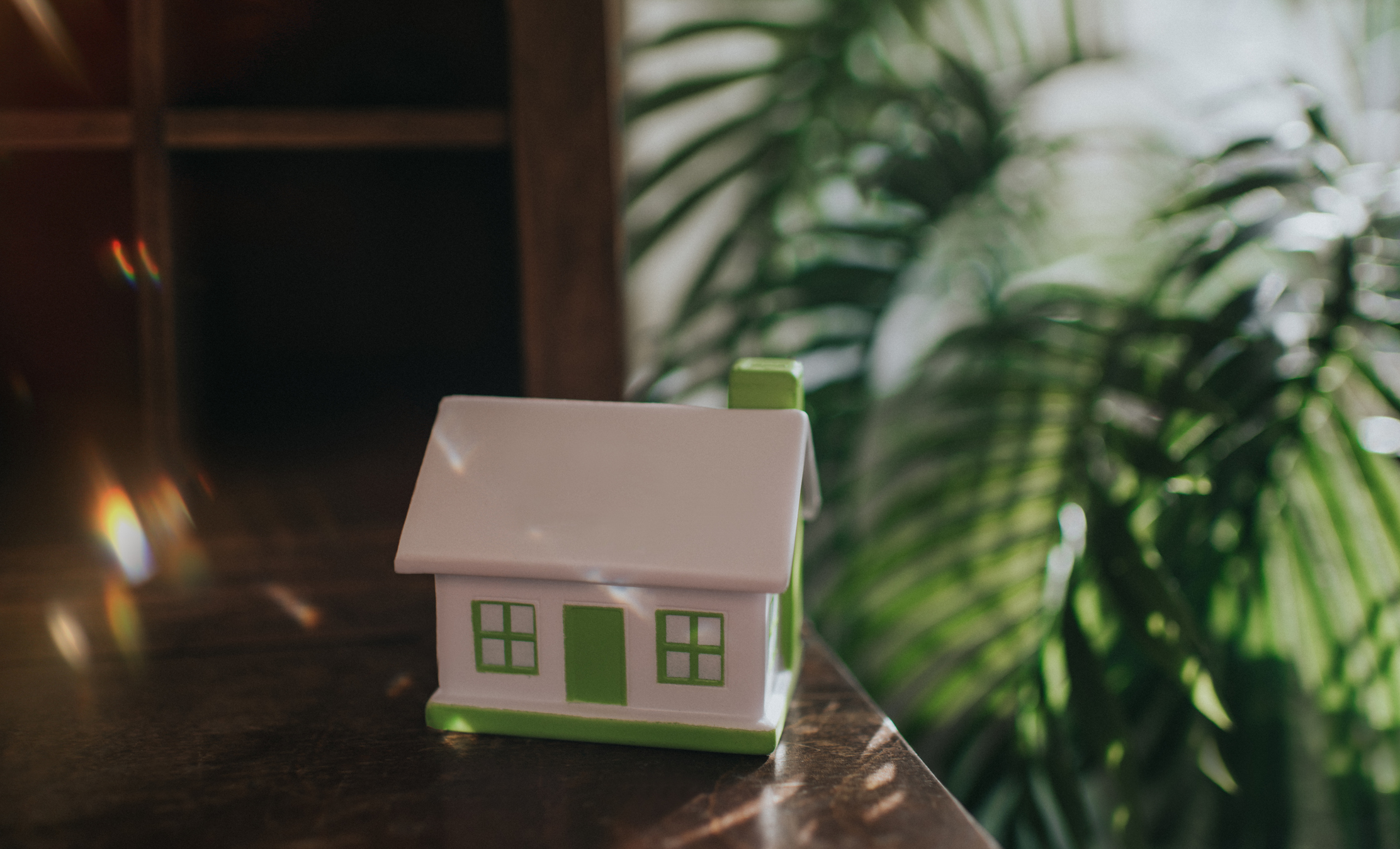Can a green mortgage help you beat rising interest rates?
A green mortgage could help you lower your mortgage cost and reduce your bills. We explain why and how they work.


Get the latest financial news, insights and expert analysis from our award-winning MoneyWeek team, to help you understand what really matters when it comes to your finances.
You are now subscribed
Your newsletter sign-up was successful
Want to add more newsletters?
A green mortgage is a type of mortgage that is designed to encourage homeownership of energy-efficient properties, and while the primary aim is to promote sustainable living, with interest rates at 5.25% and rising energy bills, using a green mortgage could be a good way to improve your finances and cut bills.
With house prices set to fall in 2024, making green home improvements could be a good way to boost your property’s value.
Sadly, the market for these products is still small, so there aren’t as many products as other mortgage offerings.
Try 6 free issues of MoneyWeek today
Get unparalleled financial insight, analysis and expert opinion you can profit from.

Sign up to Money Morning
Don't miss the latest investment and personal finances news, market analysis, plus money-saving tips with our free twice-daily newsletter
Don't miss the latest investment and personal finances news, market analysis, plus money-saving tips with our free twice-daily newsletter
There are two main types of green mortgages available in the market One type of green mortgage rewards homeowners for living in energy-efficient homes, while the other type incentivizes them to carry out 'green' home improvements.
These improvements could include installing insulation, solar panels, or other energy-efficient features that reduce the property's carbon footprint and energy consumption, such as heat pumps.
To qualify for a green mortgage, the property must have an Energy Performance Certificate (EPC) rating of A or B, or the homeowner must carry out green home improvements.
An EPC is a document that assesses how energy-efficient a property is and is required whenever a property is built, bought, or sold.
The rating system ranges from A to G, with A being the most energy-efficient and G being the least.
What is a green mortgage?
Green mortgages are a type of mortgage that are designed to encourage homeownership of energy-efficient properties. They offer preferential terms to house buyers who can demonstrate that the property meets certain environmental standards.
This could include a new build home with an existing sustainability rating or a commitment to invest in renovating an existing building to improve its environmental performance.
The main objective of green mortgages is to promote sustainable living while also providing financial benefits to homeowners.
Incentives for the borrower to either buy a green building or to renovate an existing one to make it greener include a lower interest rate or an increased loan amount.
Lenders offer these incentives to reduce risk as there is growing evidence that green buildings (and their occupants) represent a lower risk investment for banks.
Green buildings should cost less to run due to decreased utility bills, which means the borrower is in a better financial position to repay their loan, thereby reducing the probability of default. Additionally, green buildings are thought to have an increased value, known as 'green value', compared to an equivalent property without any green credentials.
These two effects are expected to increase over time, making green mortgages a smart choice for lenders looking to reduce the risks associated with their loans.
What is an energy performance certificate (EPC)?
An Energy Performance Certificate (EPC) is a detailed document that evaluates how energy-efficient a property is. It is a mandatory certification that property owners must obtain whenever a property is built, bought, or sold.
The EPC report provides a rating on a scale of A to G, with A being the most energy-efficient and G being the least. The rating takes into account various factors such as the insulation of the property, the efficiency of the heating systems, and the use of renewable energy sources.
In addition to the rating, the EPC report also includes detailed information on the energy consumption of the property, along with recommendations on how to improve its energy efficiency.
This can include measures such as installing insulation, upgrading heating systems, or using renewable energy sources.
By implementing these recommendations, homeowners can reduce their energy bills, lower their carbon footprint, and improve the overall sustainability of their property.
Can I save money with a green mortgage?
There are two ways to save money with a green mortgage.
Firstly, the energy efficiency requirements of a green mortgage will lower a homeowner's energy costs.
Having the most up-to-date technology in your home will also likely mean less money spent on repairs and maintenance to old equipment. It's less likely your boiler will break down over the winter and need to be replaced at a huge cost.
New boilers are far more efficient and reliable than old boilers, and so are new heating systems in general.
The other way you can save money with a green mortgage is with the cost of borrowing.
The best green mortgage deals
Here are some of the top deals on the market today.
While interest rates are subject to change, most lenders also offer other rewards, including cash back and additional borrowing facilities to help with green improvements:
Nationwide provides cashback incentives on mortgages for properties with high EPC ratings. If you purchase a property with an EPC rating of A, you can receive £500 cashback, and if it's B rated, you can receive £250. Additionally, Nationwide offers a 'green' borrowing option, allowing homeowners to borrow money at 0% interest to fund energy-efficient home improvements. Borrowers can receive up to £15,000 for a two or five-year fix, providing an affordable way to make eco-friendly upgrades to their property.
Barclays provides a special interest rate for purchasing a property with an EPC rating of A or B, but only if it is a new-build directly bought from a builder or developer. Furthermore, existing Barclays mortgage holders can receive a 'greener home reward' of up to £2,000 for making green home improvements such as installing a heat pump, without needing to borrow more money or take out another loan.
If you're looking to purchase or remortgage a main residential property with an EPC rating of A or B, Halifax is offering an attractive incentive. You can receive £250 cashback for doing so. Moreover, if you want to make energy efficiency home improvements such as installing insulation, a new boiler, or double-glazed windows, you may be eligible for up to £500 cashback. Alternatively, if you opt for fitting a heat pump, you can receive up to £1,000 cashback.
NatWest offers a preferential interest rate if you purchase or remortgage a property with an EPC rating A or B with a maximum borrowing limit of 85% loan-to-value.
Are you in the market for a new-build property with an EPC rating of A or B?
Virgin Money has got you covered with a preferential interest rate and a maximum loan-to-value of 85%.
Plus, if you're an existing Virgin mortgage holder and you're looking to make some green home improvements, you can receive £250 cashback when you borrow additional money. Just make sure you spend at least £2,500 on the improvements to qualify for the cashback. And if you're looking to use the Shared Ownership scheme, you can still take advantage of Virgin Money's green mortgage.
Get the latest financial news, insights and expert analysis from our award-winning MoneyWeek team, to help you understand what really matters when it comes to your finances.
Jacob is an entrepreneur, hedge-fund expert and the founder and CEO of ValueWalk.
What started as a hobby in 2011 morphed into a well-known financial media empire focusing in particular on simplifying the opaque world of the hedge fund.
Before devoting all his time to ValueWalk, Jacob worked as an equity analyst specialising in mid- and small-cap stocks. Jacob also worked in business development for hedge funds.
He lives with his wife and five children in New Jersey.
Jacob only invests in broad-based ETFs and mutual funds to avoid any conflict of interest that could arise from buying individual stocks.
-
 Financial education: how to teach children about money
Financial education: how to teach children about moneyFinancial education was added to the national curriculum more than a decade ago, but it doesn’t seem to have done much good. It’s time to take back control
-
 Investing in Taiwan: profit from the rise of Asia’s Silicon Valley
Investing in Taiwan: profit from the rise of Asia’s Silicon ValleyTaiwan has become a technology manufacturing powerhouse. Smart investors should buy in now, says Matthew Partridge
-
 Act now to bag NatWest-owned Ulster Bank's 5.2% easy access savings account
Act now to bag NatWest-owned Ulster Bank's 5.2% easy access savings accountUlster Bank is offering savers the chance to earn 5.2% on their cash savings, but you need to act fast as easy access rates are falling. We have all the details
-
 Moneybox raises market-leading cash ISA to 5%
Moneybox raises market-leading cash ISA to 5%Savings and investing app MoneyBox has boosted the rate on its cash ISA again, hiking it from 4.75% to 5% making it one of top rates. We have all the details.
-
 October NS&I Premium Bonds winners - check now to see what you won
October NS&I Premium Bonds winners - check now to see what you wonNS&I Premium Bonds holders can check now to see if they have won a prize this month. We explain how to check your premium bonds
-
 The best packaged bank accounts
The best packaged bank accountsAdvice Packaged bank accounts can offer great value with useful additional perks – but get it wrong and you could be out of pocket
-
 Bank of Baroda closes doors to UK retail banking
Bank of Baroda closes doors to UK retail bankingAfter almost 70 years of operating in the UK, one of India’s largest bank is shutting up shop in the UK retail banking market. We explain everything you need to know if you have savings or a current account with Bank of Baroda
-
 How to earn cashback on spending
How to earn cashback on spendingFrom credit cards and current accounts to cashback websites, there are plenty of ways to earn cashback on the money you spend
-
 John Lewis mulls buy now, pay later scheme
John Lewis mulls buy now, pay later schemeThe CEO of John Lewis has said the retailer will consider introducing buy now, pay later initiatives for lower-priced items.
-
 State pension triple lock at risk as cost balloons
State pension triple lock at risk as cost balloonsThe cost of the state pension triple lock could be far higher than expected due to record wage growth. Will the government keep the policy in place in 2024?
